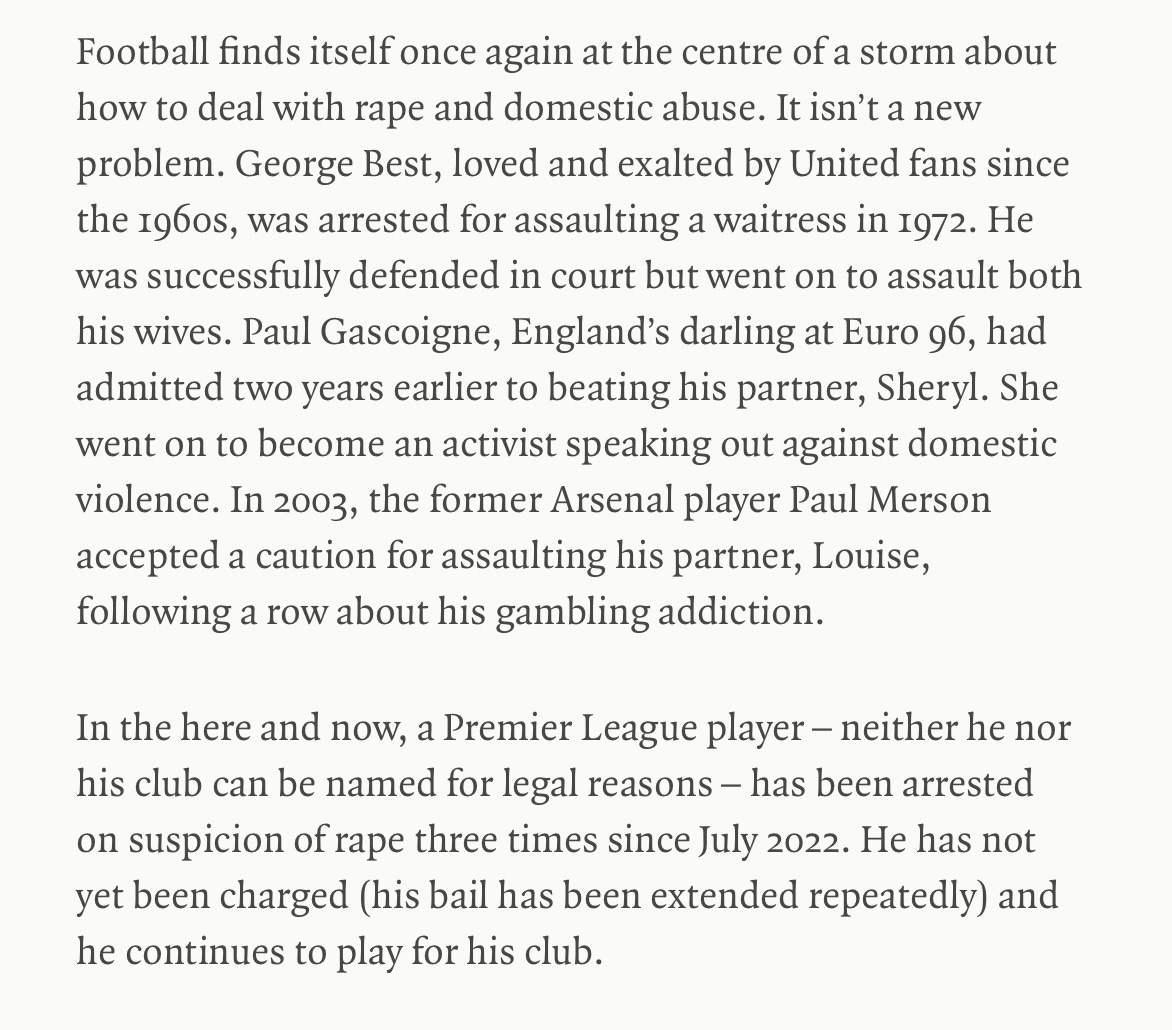Redemption arcs v staying in the problem; Commonwealth v Birmingham is broke; PIF takes; Sandhurst, leadership and talent ID; Boris the Buzz Addict; Aren’t we over major events yet; Napster v Spotify
Overthinking the sports business, for money
Leaders Week London returns this October - mark your diaries.
This year it will be from 16 to 19 October, just 6 weeks away.
Leaders Week London is a 4-day festival of industry insight, connection building and relationship nurturing.
The Summit, part of Leaders Week, will be held at Twickenham Stadium on 18th and 19th October.
Use UP15 for a 15% discount on your Summit passes - visit leadersinsport.com for more information
Do people change?
Many listeners have got in touch to say how much they enjoyed our conversation with Major General Bill Wright CBE, the former Commander of the British Army Military Academy Sandhurst who oversees career and talent pathways for the entire army.
Both he and Ed Smith, the former England cricket selector, were discussing identifying leadership talent.
I asked Bill if people can change.
He made an important distinction:
‘Can you learn, adapt, develop new skill sets. Yes, absolutely. Leadership is a lifelong journey and development…but where it gets really difficult is where it relates to character. Character is a really hard thing to change’
We were talking about the relationship of people and systems - the army, a sports team, the judiciary, society - and how hard it is to create a system that allows people to demonstrate change.
Redemption and all that.
As someone who self identifies as a late developer, it’s a topic about which I’ve become slightly obsessed.
It’s depressing to think we’re stuck as we’ve always been, the sum of all our past beliefs and actions, nothing added, subtracted or transformed.
This is really good on it - Why Did We Stop Believing People Can Change?
People can change; some have; some insincerely profess to have done so; some won’t or can’t or will relapse. Asserting that someone has not changed may be as untrue, but perhaps it feels more like certainty, and it certainly requires less trust.
The key point, made by Bill Wright, is that change takes time.
And hard work, on the part of the individual doing the changing.
It also requires the audience of that change to notice and accept it.
This is obviously true in a military scenario.
‘Because it very quickly gets to trust’.
Any system has to be agile enough to let this process play out.
Often, it’s unable to do this.
The best piece on Mason Greenwood
See also: Colin Millar made an essential point this week.
Is sport losing the major event argument?
This week’s podcast gathers a group of experts to answer that question.
The conversation is given extra relevance by the story of Birmingham’s bankruptcy, pushing some to link it to the city’s hosting of the Commonwealth Games last year.
This was a red flag waved as far back as 2018: Commonwealth Games in 2022 could bankrupt Birmingham.
To blame Birmingham’s current plight on the games is beguilingly easy, and lets the last 13 years of Tory austerity off the hook.
(UP Rule: be careful with stories that feel inevitable).
That said, there is a problem with the Commonwealth Games.
It’s stuck in the middle, between the Olympics and single sport (i.e. cheap) World Championship type events.
Put another way, it fails the Boris Johnson test.
The Boris Johnson Guide to Major Events
My holiday reading included Anthony Seddon’s book on Johnson at Number 10.
Johnson was above all a showman as Mayor, receiving his highest ratings from the public when he was stuck on a zip wire during the 2012 Olympic Games. ‘He loved the adulation of the crowds during the Olympics. He developed an almost god-like aura during them,’ said his City Hall communications director Will Walden, who recalls Johnson saying, ‘It just doesn’t get better than this.’ The Olympics were to be the centrepiece of his mayoralty: his first term was devoted to preparing for them, his second, to reaping the harvest. But in Downing Street, there was to be no equivalent to the Olympics, nor anything that came near to giving him the same buzz, however hard he looked, and he looked hard. He was a buzz addict.
Every major event bid needs a local buzz addict to get it over the line.
The Commonwealths aren’t buzzy enough to attract them.
See also, Dominic Cummings’ contempt for this strategy:
Tension grew when it became obvious to everyone in the building that Team Cummings had no respect for Johnson’s ‘legacy’ projects. They found his desperate search for personal projects risible and contemptible. ‘Lacking an agenda of his own, he alighted on Net Zero despite knowing nothing about it, the Scotland–Northern Ireland bridge, nonsense, COP26 as his “green Olympics”, the “Festival of Brexit”, the Commonwealth Games,’ says one Cummings supporter. Another believes ‘he was always desperate to relive the glory days of the Olympic Games, with him taking the applause’. Cummings had no time for any of this nonsense. He saw Johnson’s infrastructure projects as ‘massive white elephants’ and he bitterly resented Johnson getting his way on HS2, another marker in their deteriorating relationship.
A couple of quick PIF Takes
Mo Salah and the FFP loop
I sent this to a few Liverpool fans. It’s becoming a thing.
What happens if UAE buys The Daily Telegraph?
Newswashing?
A shared loathing of human rights and a healthy and well funded scepticsm toward climate change.
A match made in heaven (is that right?)…
Loads of Man City parallels in this analysis of the UAE’s bid to buy the Torygraph by the excellent (and former Telegraph columnist) Peter Oborne.
No Spotify without Napster
The Premier League is building an ‘internal team of lawyers and experts’ to counter the pirates.
Nice work if you can get it etc.
Fwiw, I disagree with SportsPro’s take:
Disruption never comes from within (ok, Kodak bores, jog on).
Napster paved way for Spotify.
But is Spotify for Sport the goal?
Ask a musician if that’s a future worth fighting for…
See you on September 28th
Click the image to buy one of the remaining tickets.







